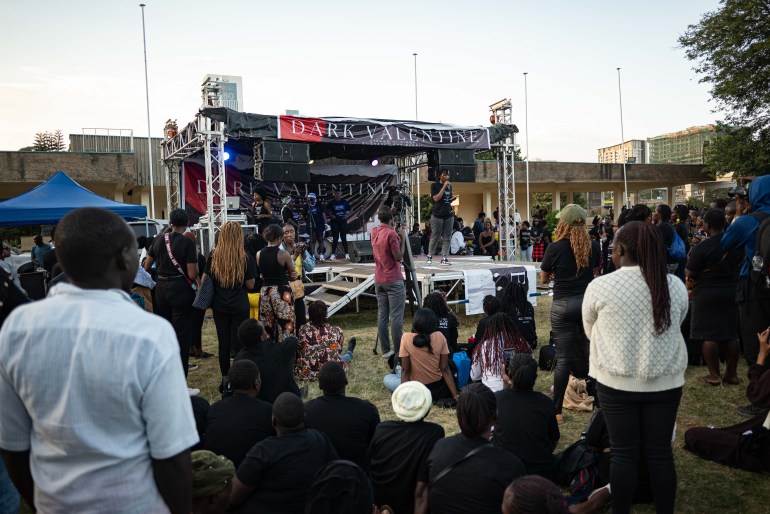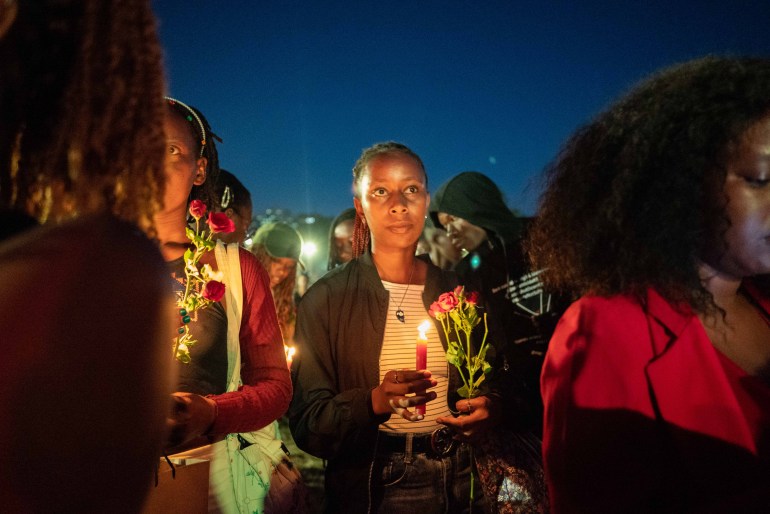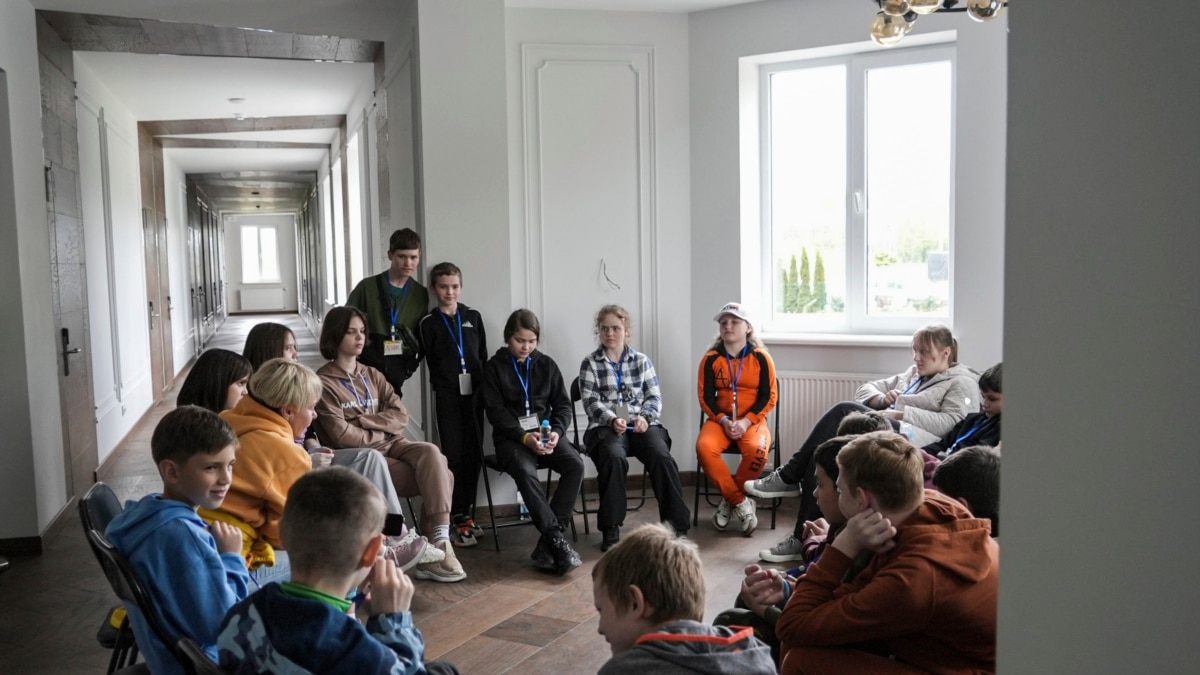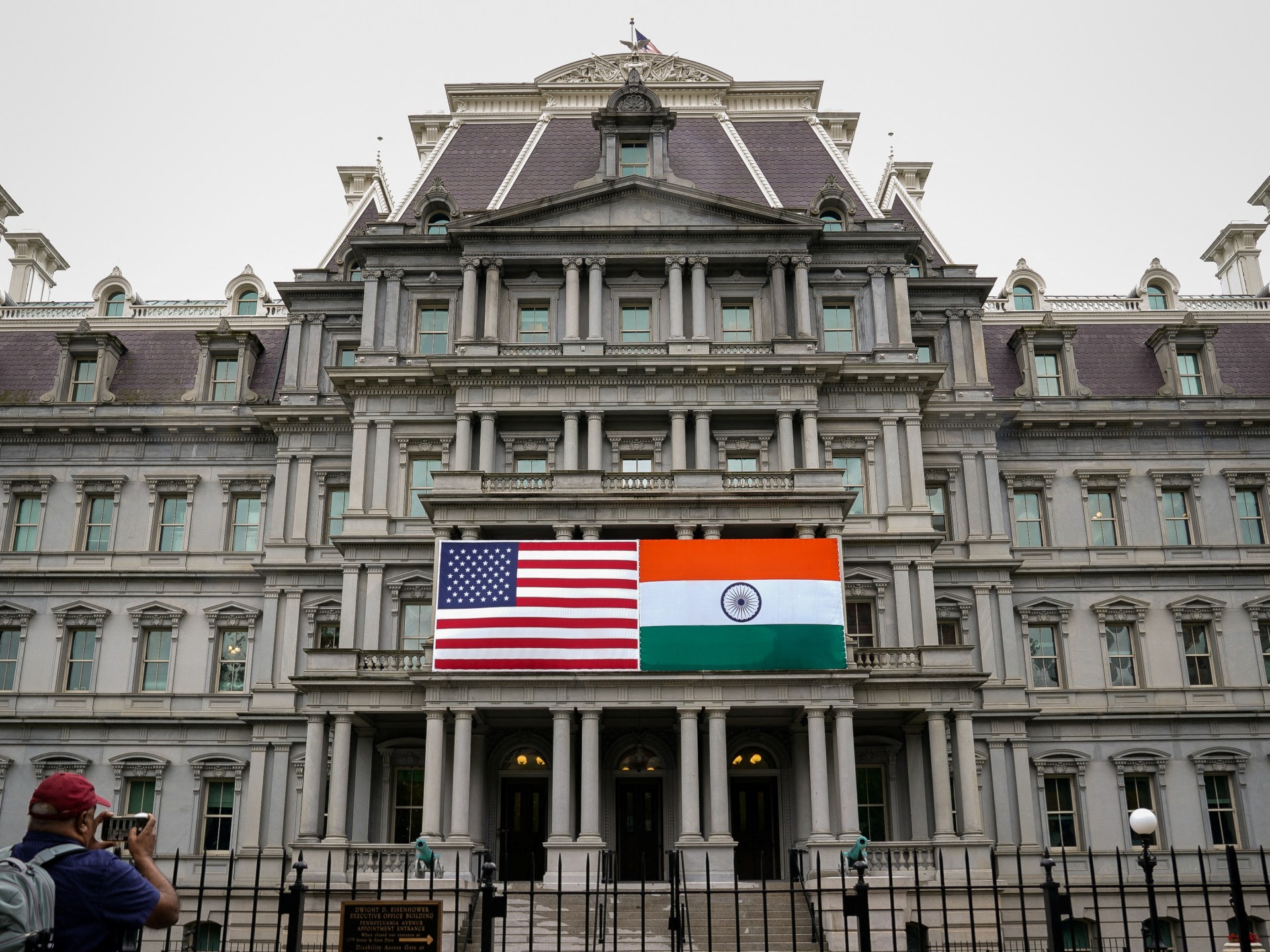Nairobi, Kenya – As people around the world celebrate Valentine’s Day with flowers and chocolate, Kenyan women are in mourning. Hundreds of them wore black outfits and held lit candles and red roses at a vigil honoring the more than 30 women murdered in the country in 2024.
Wednesday’s vigil in Nairobi – with passionate calls to action and musical performances – was organized by the End Femicide Kenya Movement, a collective of more than 1,000 organizations and individuals. “Dark Valentine” vigils were also held in six other cities increasing cases of femicidethat have attracted national attention.
“Flowers are not beautiful on a coffin,” is written in Swahili on a shirt worn by many mourners in Nairobi.
The aim of the vigils is to put pressure on the government to comply with the movement’s demands. This includes declaring femicide and violence against women a national emergency and setting up a commission to eliminate both.
Organizers said they planned the Valentine’s Day events to raise awareness of the “dark realities” of gender-based violence and the killing of women by their loved ones.
“The tragic number of women killed by their partners or family members [are] “This has turned into sensational media headlines,” the movement said in a statement.
According to End Femicide Kenya, the response from authorities and politicians is focused on these killings [on] Victim blaming” and are “full of misinformed advice urging women to be careful not to meet up with strangers.”
Figures from the Africa Data Hub show that husbands and boyfriends – rather than strangers – are the perpetrators of two-thirds of murders of women in Kenya.
“Many of us ask ourselves, ‘Where do we go if we could be killed at home?'” the statement from the End Femicide Kenya Movement said.
The vigils follow nationwide marches in January in which 20,000 Kenyans took part to demand government action to prevent and prosecute cases of sexual and gender-based violence and femicide, which they say are often neglected. Advocates continue to raise awareness and advocate for changes in the law, given what they say are challenges navigating the criminal justice system.

A lengthy process
According to Njeri Migwi, executive director of Usikimye, an organization that rescues survivors of gender-based violence, they often do not have access to justice due to various obstacles, including lack of awareness of their rights. Survivors also often face police officers’ refusal to investigate intimate partner violence, which they “find annoying,” she tells Al Jazeera.
Even for people living in poverty, seeking justice can be costly, Migwi explains. These costs include using public transport, obtaining medical records and possibly paying bribes to obtain a police report (approximately 200 shillings or US$1.25).
As part of filing a police report, sexual assault survivors must obtain a physical examination from a doctor and an assault confirmation form. Obtaining this form costs either 1,500 or 2,000 shillings ($9.80 or $13), depending on the survivor’s location. According to Usikimye, many survivors cannot afford this fee and therefore do not document their cases.
These costs compound an already cumbersome process that requires survivors to travel back and forth multiple times between a police station and approved gender-based violence clinics or hospitals to fill out paperwork before police can open a file to begin an investigation.
“The process is very lengthy… especially for people in low-income areas and informal settlements. Most people don’t know what justice looks like,” says Migwi.
But the first step requires police cooperation, said Tracey Lichuma, legal advisor at the Federation of Women Lawyers in Kenya, which provides legal aid to women and trains authorities on how to respond appropriately to gender-based violence.
“I ask [clients] if they reported to the police and said: “I went to the police and they refused to give me a form or.” [case] Number.’ Without a police summary nothing can be done, even if we [lawyers] “I want to move heaven and earth,” Lichuma tells Al Jazeera.
Their clients report that the police often undermine them and discourage them from reporting sexual and gender-based violence. “You’re pregnant now. What do you expect from this man? [the accused] to support your child when he or she is in prison?” an officer might ask.
A police spokesman did not immediately respond to a request for comment.
Once survivors receive a police report, they must navigate Kenya’s criminal justice system, which Lichuma says is underfunded, leading to backlogs. During this time, she says, survivors lose hope and, along with witnesses, are routinely intimidated, blamed and shamed by defendants and other community members, so survivors refuse to testify in court or drop charges.
In 2023, Kenya established twelve sexual and gender-based violence courthouses to deal exclusively with these criminal cases. Although the move has been widely welcomed, activists like Migwa say courts are already overburdened and are not gender-sensitive and traumatized, which could harm survivors.
A representative for the newly commissioned courthouse could not be reached for comment. However, its website states that the court’s judicial officers have been trained “in the intricacies related to SGBV.” [sexual and gender-based violence]including the needs of the bereaved, and are able to handle the complexities of such cases with the utmost sensitivity.”
According to Lichuma, many survivors are unaware of reporting requirements, such as the need to undergo a medical examination immediately after an assault and to prove their case “beyond a reasonable doubt.” In addition, many survivors say that the perpetrators bribed their way out of criminal charges.
“There are those who advance with the justice system and there are those who fail,” Lichuma says.

“We know the system”
There are numerous examples of a pattern of neglect and denial of justice to victims and survivors of sexual and gender-based violence, activists and analysts say.
In 2013, a 16-year-old girl on her way home from her grandfather’s funeral was raped by six men, severely beaten and left to die after being thrown into a 3.5-meter-high latrine.
The rapists were ordered to mow a lawn for several weeks. sparked widespread outrage, protests and international condemnation that ultimately led to 15-year prison sentences for three of the men. However, the verdict and sentences were successfully appealed and the men served no prison time.
Connie Muuru has little faith in authorities after years of trying to find justice for the 2016 murder of her 29-year-old daughter, Julie Sharon Muthoni.
According to Muura and numerous media reports, Muthoni was taken to hospital as she lay on the verge of death by her boyfriend, who allegedly beat her beyond recognition. Muura rushed to the hospital, but when she arrived, her daughter was already in the morgue.
Since then, Muura has sought justice, relentlessly pursuing police after officers told her her boyfriend had fled the country.
“I suspected that the police might have helped him escape,” she says. “He didn’t have time to reach this place [Uganda, where authorities claim he is] Because I reported it within a few hours.”
Muura struggled with severe depression and prioritized her health and stopped contacting the police. She heard of cases where survivors of gender-based violence or their family members died by suicide out of hopelessness. In response, she founded a support group made up of ten other women, all mothers of murdered children.
“We know the system,” says Muura. “We see that the police always ignore cases involving abuse and murder of women and girls.”
Famous women are also among the sad statistics. When world-famous Olympic runner Agnes Tirop was stabbed and beaten to death in 2021, her partner was the only suspect. While awaiting trial after two years in prison, he was released on bail in late 2023 for good behavior.
In light of cases like these, and in the wake of marches, commemorations and media attention surrounding femicide, advocates hope to use the momentum to bring about change.
Migwi is one of them. She says Usikimye is currently looking for a lawmaker willing to introduce a bill that the movement says would help combat the “institutional tolerance that allows femicide to take hold.”






Recent Comments